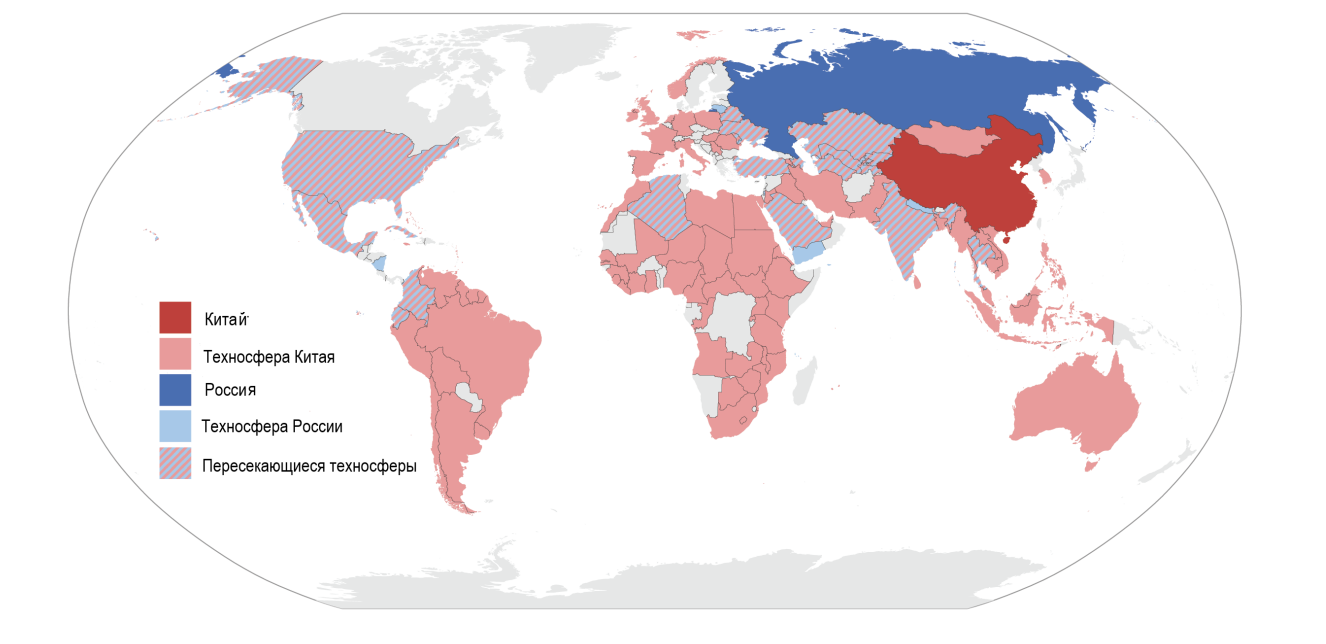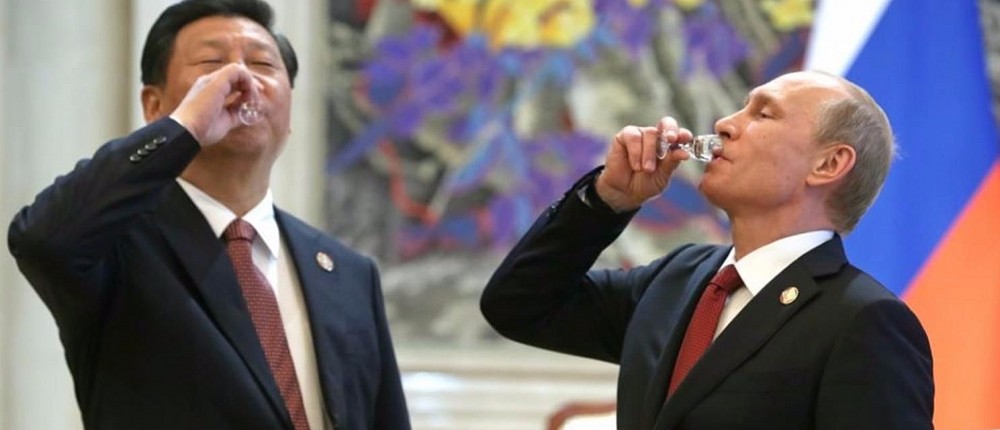
Ended
IGF 2019 in Berlin. A week of intense debate by experts from all over the planet Earth under the UN flags about
Internet Governance . All multistakeholders of the Internet came to IGF, who today make the Internet, use the Internet, squeeze the Internet and protect this Internet on different continents.
The annual Forum raised a large number of topical issues that concern all progressive humanity now. Among other things discussed:
- The risks of civil discrimination created by the use of artificial intelligence (AI).
- The order and scope of access by law enforcement agencies to data located outside the borders of their own jurisdiction of states to combat cybercrime
- How to protect privacy on digital platforms
- How to solve problems to effectively combat illegal content on the Internet and protect digital rights at the same time
To solve these issues at the international level, states need solidarity. Solidarity in the desire to preserve the Internet as a world heritage, ensuring its indivisibility and connectedness. The result of such solidarity could be the long-awaiting international treaty, which would determine the status of the Internet and the obligations of the participating states with regard to cyberspace. However, there is no such unanimity.
As well as there is no single understanding of the processes themselves, and even the words that describe these processes. Those who created this Internet under the “sovereign Internet” understand the sovereignty of the global network itself from states and individual players, as well as the sovereignty of each person in it, while others believe that sovereign is the right to legal violence of states and the supremacy of national power.
What did the “first persons” talk about?
The conference was opened by UN Secretary General Antonio Guterres and Chancellor Angelina Merkel. Both noted that global networking technology, once created by scientists and engineers, is falling apart today. Merkel said that in the near future we should expect even more surveillance on the network, and state filtering and censorship of information will increase.
It was noted that different countries' approaches to regulating the Internet are not necessarily bad. They include things like privacy, cybersecurity, and illegal laws. But they are increasingly different in different countries, and some countries even try to apply their national laws beyond their borders. This, in her words, is a recipe for legal uncertainty, high costs of complying with regulatory requirements in different countries and, possibly, a gradual transition to the so-called “splint Internet”. Talked about splint Internet at IGF a lot. Splint Internet is such a new concept describing the phenomenon when national governments strive to turn the World Wide Web into a series of individually managed national Internet networks.
It’s obvious to everyone today that there is a Chinese model that is now being exported by the CCP to all of Southeast and Central Asia and Africa, as well as Russia with its “sovereign Internet”, “ready for an American enemy’s attack”, and even the very wild practice of total 7 -day shutdown in
Iran , so they couldn’t talk about it at the IGF.
The creator of the World Wide Web, the current head of the World Wide Web Consortium, Sir Tim Berners Lee, before the launch of the Forum, published a
“contract for the Internet” in an attempt to develop basic principles for states, companies and citizens. The father of URL, HTTP, HTML, today an evangelist of the open network, explained at IGF how the contract was created and why the adoption of these principles will provide humanity with a single and indivisible Internet.
According to the published “contract”, which has already been supported by the largest IT giants and leading human rights organizations in the field of digital rights (including Roskomsvoboda ), the following principles are established:
For governments:
- Ensure universal internet access.
- Maintain internet accessibility all the time.
- Protect and respect the fundamental rights of people to online privacy and data protection.
For companies:
- Make the internet accessible to everyone.
- Respect and protect people's privacy and personal data in order to build a “network trust”.
- Develop technologies that support the best in humanity and challenge the worst.
For citizens:
- Be the creators and partners of the Web.
- Build strong communities that respect civic discourse and human dignity.
- Fight for the Network.
“One world. One network. One Vision "
It was under this slogan that the Forum was held. However, there is no reason for optimism that everyone will suddenly agree. A recent study,
“The Internet and Jurisdiction,” showed that 95% of the experts surveyed agreed that there would be an increase in clashes between the digital laws of different countries in the next three years. And only 4.5% believe that there is “sufficient international coordination and coordination” to solve this problem. Moreover, these few optimists were representatives of governments and large technology companies. Which, unfortunately, are not known.
An interesting message came from the country that provided hosting to IGF this year. The Chancellor and the Minister of Transport and Digital Infrastructure of Germany, called for a review of Internet governance, that is, the legal framework. “The traditional multilateral approach as cooperation between governments should be expanded,” Merkel noted and stated that new structures should be created. Since the Internet applies to everyone, science, business, citizens and civil society must also have a say. German officials did not dwell on this in detail, but referred to other forums, such as the G20 and EU meetings, which could probably try to lead the harmonization process in the near future or take over some of the functions of Internet Governance.
However, it is already clear that not everyone shares the multistakeholder approach of the West to the issue of Internet governance. If you look at the world map, we will see that today most of the planet is in the technosphere of China and Russia, which distribute their own models of information control, as well as technologies for surveillance and censorship in 110 countries. These countries either directly acquired or exported similar exported practices and technologies. You can read more about this in the Open Technology Fund report
“The World Wide Web of Russian and Chinese Information Controls” .

But the Russian and Chinese delegates did not talk about this at the IGF. At numerous IGF sessions, representatives of the Russian and Chinese sides talked about digital transformation, privacy protection, intellectual property rights, the ethical use of AI, the joint fight against cybercrime, and other aspects of regulation that require joint integration within the framework of a multilateral international approach. To questions about frantic censorship, concentration camps in East Turkestan and the isolation of their own networks, the representatives smiled and replied that these were all media inventions and lies of local disaffected activists. And the countries themselves, they say, share common values and look in the same direction with the whole world in order to synchronize regulatory processes.
About the Russian
IGF , which can hardly be called a multi-stakeholder platform for joint decision-making, the chairman of the State Duma Information Policy Committee Leonid Levin reported. He read only on paper and in Russian, which is strange for IGF, where even representatives of Zimbabwe and Malaysia speak good English.
Mr. Levin, of course, forgot to mention censorship that has long gone out of control, new technologies for tracking based on
Facial recognition , repression for words on the Internet, the first Russian shutdowns and the freshly adopted law on
“sovereign Internet” . However, the representative of Roskomsvoboda and OZI Alexander Isavnin reminded him and other delegates about this.
Own way
In the meantime, from year to year, the international community has been discussing at the IGF the issues of joint Internet governance, information control technologies, information management methods and related laws have been phased implemented in many third world countries according to two main models: “One belt - one way” (Chinese model) and the Greater Eurasian Partnership (Russian model). However, in 2019 these two models began to
collapse into one and already form a single framework for regulating cyberspace for both countries. This framework is significantly different from the approaches developed at IGF.
Let me remind you that on April 30, 2015, the Government of the Russian Federation issued
Order No. 788-r “On Signing the Agreement between the Government of the Russian Federation and the Government of the People’s Republic of China on Cooperation in the Field of International Information Security,” and on October 20 this year at the VI International Conference on Internet in Wuchen (China) Roskomnadzor and the Chinese Cyberspace Administration have signed a cooperation agreement. The document is dedicated to the joint counteraction of prohibited information. According to the press secretary of Roskomnadzor Vadim Ampelonsky, “close working contacts” between Internet censors have occurred over the past few years. Now they are enshrined in an international treaty.

The document has not yet been published, however, what measures the two countries propose to implement within the framework of harmonizing approaches to regulating the digital environment can already be understood by the document, which was published in September 2019 by the Chinese Cyberspace Administration. The bill, reflecting a purely Sino-Russian approach to Internet Governance, has a fairly impressive new list of grounds for restricting access to information. In addition to prohibitions, the
document also speaks of encouraging references to certain information. In particular, the thoughts of Chinese President Xi Jinping, information about Chinese socialism, and also about the policies of the CCP. At the same time, the new document requires website operators:
- creating mechanisms for checking content in real time, in order to combat rumors and fakes;
- Promoted content via push notifications
- creating a user rating system.
Drink, Surf, for a sovereign!
Meeting several times a year at events dedicated to Internet governance and the protection of digital rights, we like to give each other something of a nationality with colleagues. As a national gift, this time in the Moscow duty free I grabbed a bottle of Beluga for my Belarusian colleagues. Having met the guys from Minsk, I handed them the vodka and successfully forgot about it, plunged into the atmosphere of the forum. But then it turned out, so as not to carry excess cargo, Belarusians left a bottle at the stand of the Internet Protection Society. And in the end they forgot to pick her up from there. At the same time, they believed that I, going to the stand, picked it up and was going to return it to them.
Already at the airport, Isavnin writes to me and tells me that he accidentally met the Internet grandfather,
Vint Cerf , and gave him this bottle of vodka. He laughed and said that he remembered what was said at the
section on sovereignty and fragmentation of the network anecdote, in which we in Russia only hope that all the money will be stolen and there will be no sovereign Internet.
Well, someone is a joke, but someone has to live in the conditions of this sovereign Internet. Well, drink, Vint Cerf, our Russian vodka for our sovereign Internet.